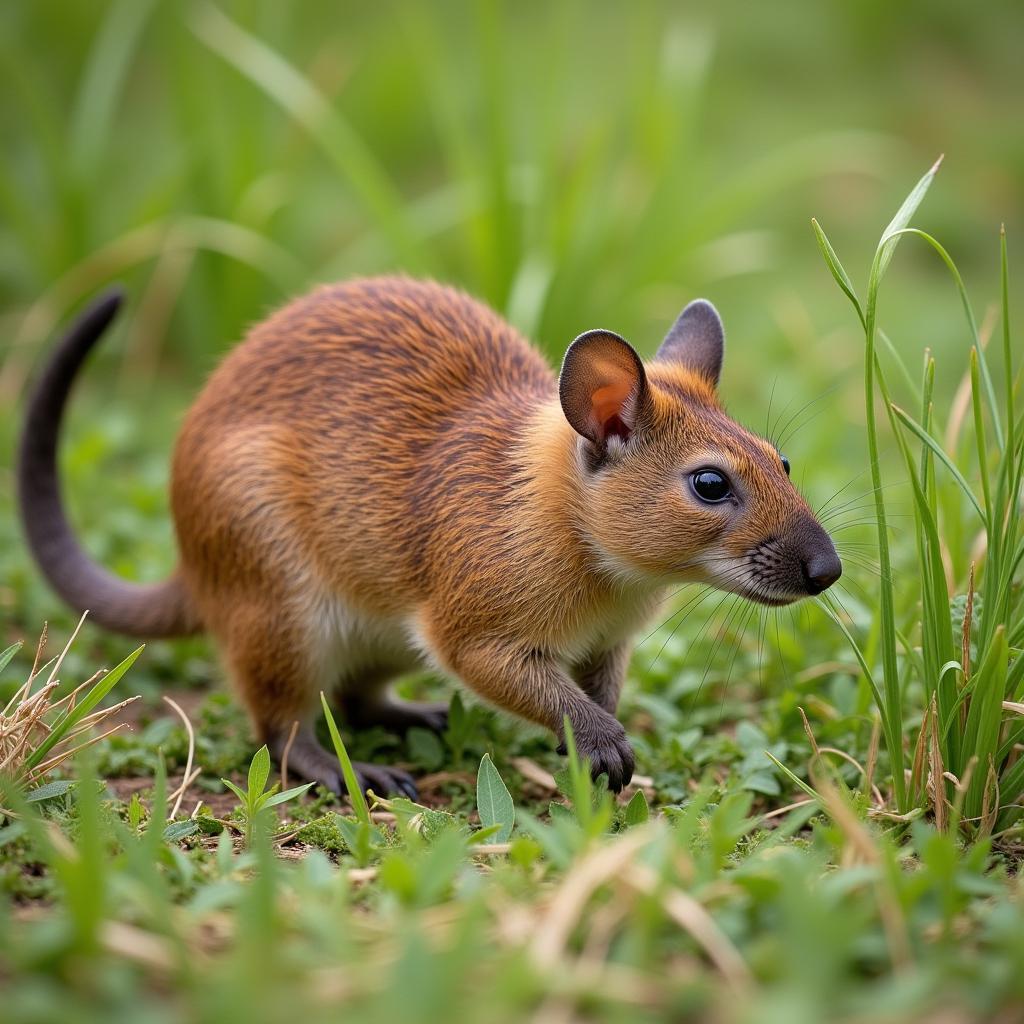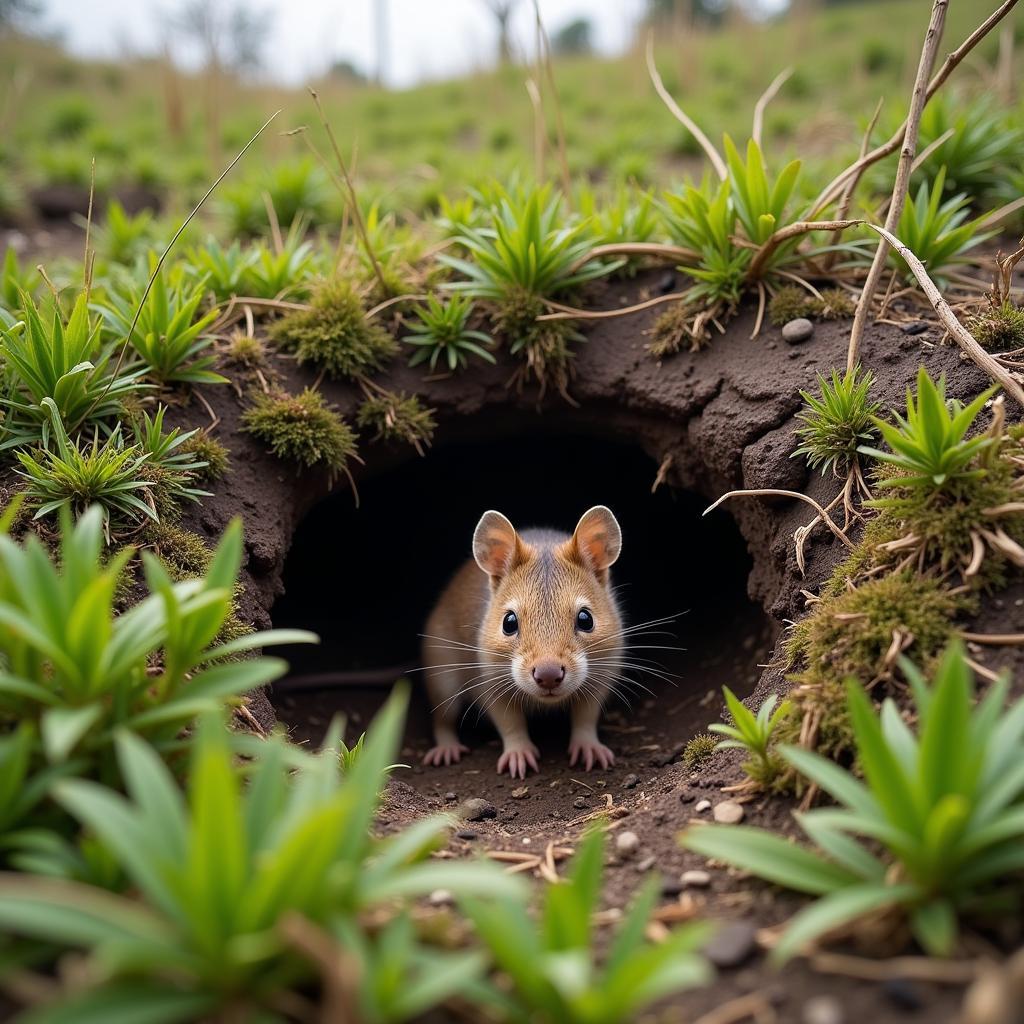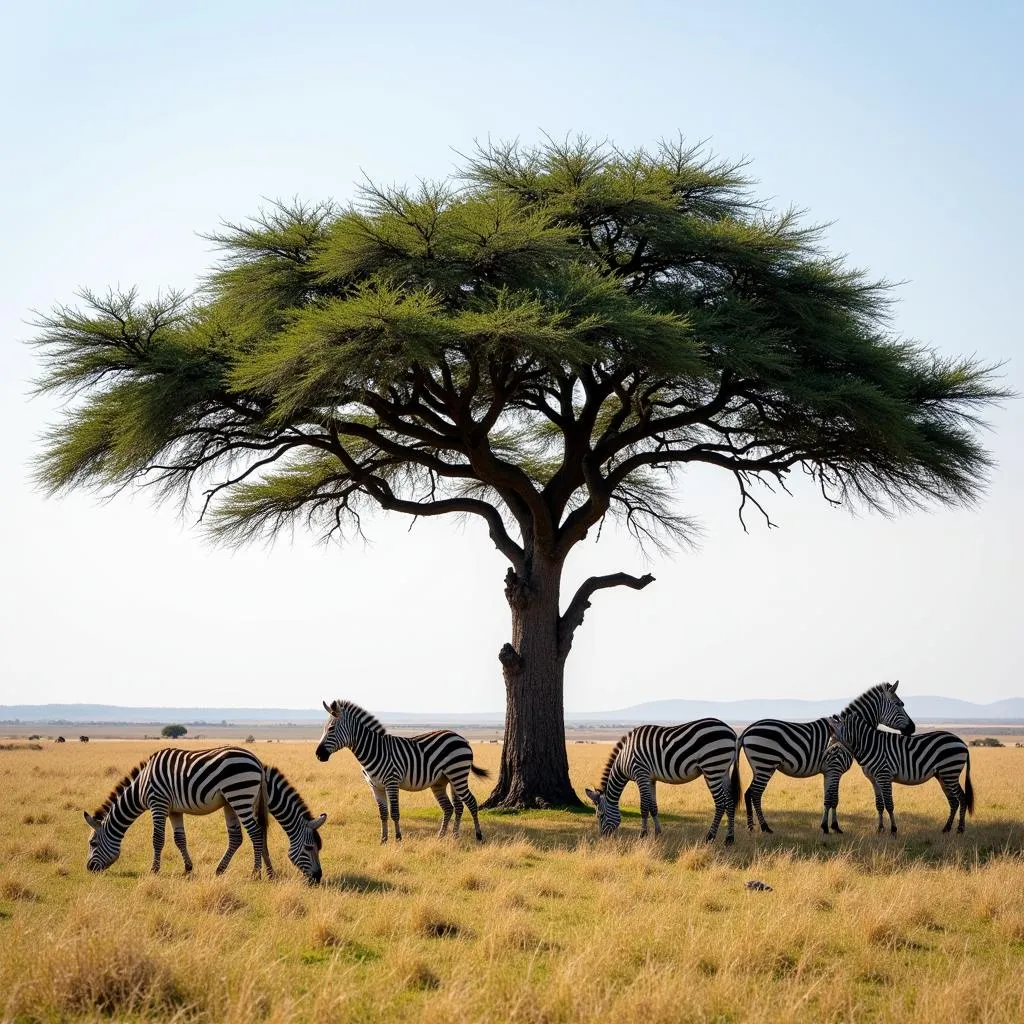The Fascinating World of the African Grass Rat
The African Grass Rat, a small but mighty creature, plays a vital role in the diverse ecosystems of Africa. These rodents, often mistaken for common mice, are far more intriguing upon closer inspection. From their unique adaptations to their important place in the food chain, let’s delve into the fascinating world of the African grass rat.
Understanding the African Grass Rat: More Than Just a Rodent
African grass rats, scientifically classified within the genus Arvicanthis, are distributed across sub-Saharan Africa. They thrive in a variety of habitats, from grasslands and savannas to agricultural fields and even urban environments.
 African Grass Rat in its Natural Habitat
African Grass Rat in its Natural Habitat
Unlike their house mouse relatives, African grass rats boast a sturdier build with longer legs and a more prominent, hair-covered tail. Their fur, typically a reddish-brown hue, provides camouflage amidst the grasses and undergrowth they call home.
The African Grass Rat’s Diet and Lifestyle
Primarily herbivorous, African grass rats are opportunistic feeders, consuming a wide range of grasses, seeds, fruits, and insects. Their adaptable diet allows them to thrive in various environments and weather conditions.
These rodents are primarily nocturnal, venturing out under the cover of darkness to forage for food. Their keen senses of smell and hearing help them navigate their surroundings and detect potential threats.
Social Creatures with a Complex Hierarchy
African grass rats are highly social animals, living in complex colonies with established hierarchies. These colonies often consist of a dominant male, several breeding females, and numerous offspring.
Communication within the colony is crucial, and African grass rats employ a range of vocalizations, including chirps, whistles, and ultrasonic sounds, to convey information about food sources, potential danger, and social status.
The African Grass Rat’s Role in the Ecosystem
While often considered pests in agricultural settings, African grass rats play a vital role in maintaining the delicate balance of their ecosystem.
As prey animals, they provide an essential food source for a variety of predators, including snakes, owls, and small carnivores. Their burrowing activities also contribute to soil aeration and nutrient cycling.
 The African Grass Rat's Influence on the Ecosystem
The African Grass Rat's Influence on the Ecosystem
Furthermore, African grass rats are important seed dispersers, inadvertently spreading seeds throughout their territory as they forage, contributing to the biodiversity of plant life.
Conclusion
The African grass rat, far from being a mere nuisance, is a fascinating creature with a crucial role to play in the intricate web of life within Africa’s diverse habitats. Understanding and appreciating the ecological significance of these often-overlooked rodents is vital for conservation efforts and maintaining the health of our planet.

